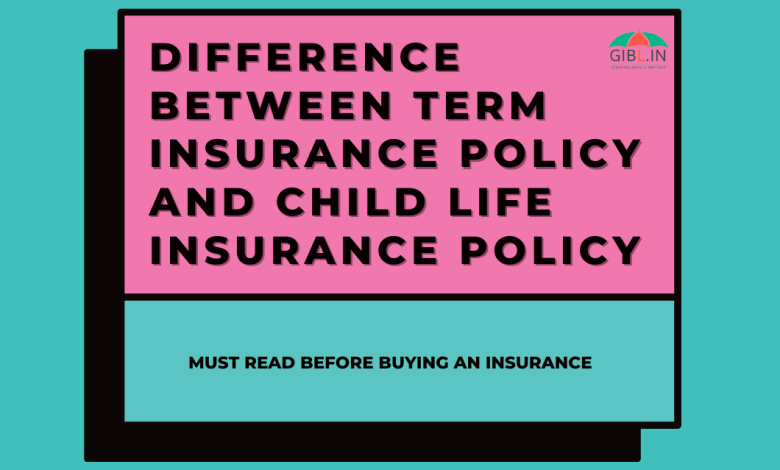
So, whether you’re thinking about starting a family or have already started one, you’ll need an insurance plan to help you protect your family’s financial future. When you do further research, you’ll find that there are numerous insurance plans that are tailored to your specific requirements.
Two prominent insurance solutions that assist parents to protect their child’s future are child insurance and term insurance plans. People are frequently perplexed as to whether they should invest in a child plan or a term plan. To protect your child’s future, it’s critical to grasp what these two plans are and how they vary.
What Is a Child Insurance Plan?
A child insurance plan serves as both an investment and a life insurance policy for your child’s future well-being. There are a variety of child plans on the market. Parents are the principal policyholders, and the children are the beneficiaries when it comes to child insurance.
Based on the profits obtained, the investment component of the coverage helps pay the expense of your child’s higher education or marriage. The life insurance component, on the other hand, ensures your child’s financial future in the case of your untimely death.
What Is a Term Insurance Plan?
Term insurance is a sort of life insurance that primarily protects your loved ones’ financial future in the event of your death. In this case, the policy can also help to safeguard your child’s future.
Term insurance, in theory, pays a lump payment to the policyholder’s dependents when he or she dies. The money can be utilized by the deceased’s dependents as and when they need it. Term insurance, on the other hand, is the most cost-effective life insurance policy on the market.
Unlike a child plan, you may purchase the coverage at any point in your life and personalize it as your family grows. In India, insurers enable you to increase the policy’s coverage by adding rider benefits. Your children’s and other family members’ financial futures are also protected with a term insurance policy.
What Is the Distinction Between a Child Plan and A Term Plan?
The following principles will help you grasp the differences between term and child insurance.
The Plan Type
Child insurance offers both life insurance and investment opportunities. Term insurance is only a type of life insurance.
Premiums
The cost of a child plan is determined by the coverage and perks chosen. In addition, following your death, the insurer continues to invest in the insurance. As a result, compared to term insurance, child plan premiums are higher. Term insurance is the most cost-effective type of life insurance on the market. You may use the term insurance calculator to figure out how much your coverage and perks will cost.
Sum Assured
After you die, the child policy gives a lump sum payment to your children. Term insurance, like a child plan, pays a lump sum payout to your children and beneficiaries when you die.
Payouts
Child plans pay out money to children at predetermined intervals/milestones. Except for the death benefit received by your dependents in a term plan, there are no payments.
Partial Withdrawals
With child insurance, you may make partial withdrawals. Any financial obligation can be met with the money received. With term insurance, partial withdrawals are not possible. When you have critical illness insurance, though, the insurer will pay you a flat sum if you are diagnosed with a serious disease. The funds can be used to pay the costs of treatment and hospitalization.
Tax Benefits
Section 80C of the former income tax code allows for a tax deduction for premiums paid for child insurance. Under Section 10(10D) of the Income Tax Act of 1961, the payout/benefit received from the policy is tax-free. Term insurance premiums can be claimed as tax-deductible under Section 80C of the previous tax code. Section 10 of the Internal Revenue Code exempts the death benefit received by the beneficiaries from taxation (10D). You can take advantage of an extra deduction under Section 80D of the Income Tax Act of 1961 if you have critical illness cover on your term plan.
Conclusion
You should now be able to tell the difference between child insurance and term insurance in general based on the information presented above. Investing in a child plan is a good idea if you just want to contribute to your child’s financial stability. Term insurance, on the other hand, is an excellent alternative if you want to financially protect your entire family (spouse, children, and parents) while you’re gone.



